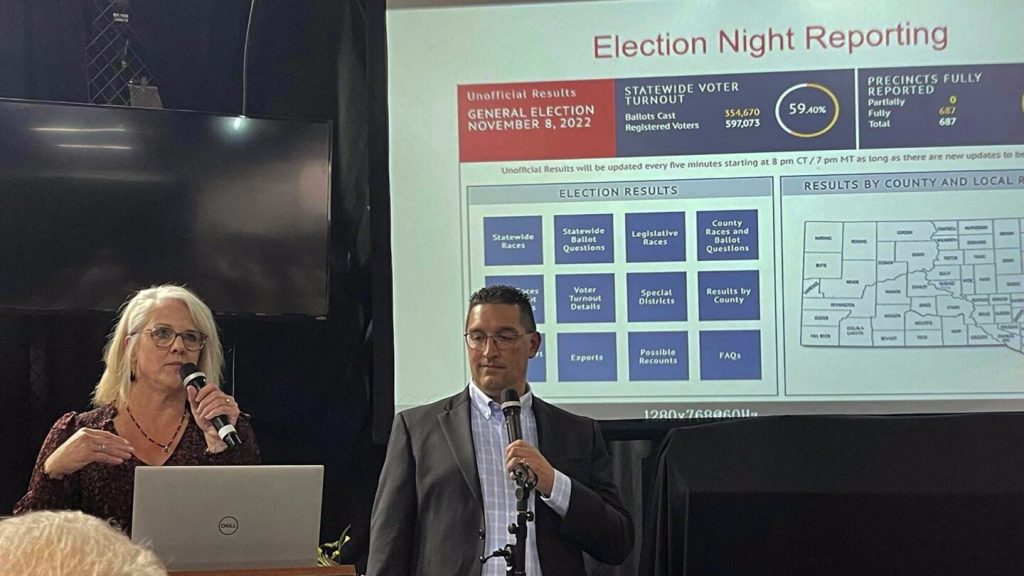Voters in three rural South Dakota counties are considering returning to hand-counting ballots, a move driven by unfounded conspiracy theories surrounding the 2020 presidential election. These counties, each with fewer than 6,000 residents, would be among the first in the U.S. to require manual counts, which have largely been replaced by machine tabulators nationwide. Despite concerns from experts about the accuracy of hand counting, supporters of the effort believe it offers increased security and transparency in elections.
The push for hand counting in South Dakota is rooted in false claims made by former President Donald Trump and his allies about widespread voter fraud and manipulation of voting machines. These claims, though lacking evidence, have gained traction in communities that heavily supported Trump. The citizen initiatives in South Dakota are set to appear on Tuesday’s primary ballot in Gregory, Haakon, and Tripp counties, with similar efforts underway in over 40 other counties in the state. While some counties have rejected the move to hand counting, others have already implemented the change for recent elections.
If the measure passes, counties like Gregory will need to adjust their election processes, potentially increasing the number of precincts and election workers to accommodate hand counting. However, officials like Gregory County Auditor Julie Bartling oppose the initiative, citing the reliability of automated tabulators. The costs associated with hand counting ballots are also a concern, with estimates ranging from $17,000 to $25,000 in Tripp County, compared to $19,000 to $21,000 using machines. Despite these challenges, advocates for hand counting remain committed to the belief that it offers more oversight and transparency in elections.
Republican state Rep. Rocky Blare, who resides in Tripp County, plans to vote against the measure, highlighting that there has been no evidence of election issues in South Dakota that would warrant a switch to hand counting. Secretary of State Monae Johnson, a Republican, also expressed confidence in tabulating machines, citing built-in safeguards and post-election audits to ensure accuracy. The upcoming June election will be the first to include a post-election audit in South Dakota, a process mandated by a 2023 state law to validate machine tabulation accuracy.
While only a few counties have transitioned to hand counting since the 2020 election, opposition to machine tabulators remains in some areas. Research indicates that manual counting is more costly, less accurate, and time-consuming compared to automated tabulation. Election experts note that large jurisdictions with significant numbers of voters may struggle to manually count all ballots and report results promptly, especially considering multiple races typically included on ballots. Despite claims that removing computers from the voting process would enhance election security, the reality is that manual counting can be challenging and inefficient in large-scale elections.


